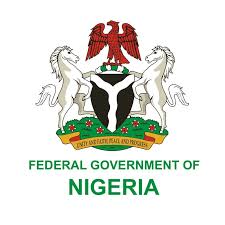Federal Government has introduced the Accelerated Basic Education (ABE) programme to reach 80 million underserved, non-literate youths and adults across Nigeria’s six geopolitical zones.
The initiative aims to deliver inclusive and high-impact literacy services without compromising on quality or relevance.
Minister of State for Education, Prof. Suwaiba Ahmad, unveiled the programme during a one-day National Stakeholders Engagement Meeting on Youth and Adult Literacy in Abuja on Wednesday.
Ahmad, represented by her Special Assistant (Technical), Dr Claris Ujam, said the programme is a strategic response to the out-of-school children challenge in Nigeria.
According to the National Bureau of Statistics’ 2022 report, nearly 80 million Nigerians—approximately 31 per cent of the country’s estimated 250 million population—are non-literate.
Ahmad described the ABE programme as a movement aimed at removing barriers to education, regardless of age, location, or circumstance.
“We all know that education forms the bedrock of every prosperous and inclusive society, yet far too many Nigerian youth and adults still remain outside the reach of basic literacy,” she said.
“This salient crisis suppresses individual potential and stalls national progress. Our mission is unequivocal, to craft pathways of hope, dignity, and opportunity through the instrumentality of accelerated basic education.”
She added that the programme was created to deliver flexible literacy models that adapt to the needs of learners across communities.
“The ABE programme is more than a solution. It is a movement, one that rejects age, geography, and circumstance as barriers to learning,” she said.
The minister encouraged NGOs and partners to grow community-driven programmes and pioneer innovative delivery models to help government reach the unreached.
Dr John Edeh, Coordinator of the workshop and Director of Literacy and Development at the National Commission for Mass Literacy, Adult and Non-Formal Education (NMEC), said the event marked a turning point for collaboration and decisive action.
“We are here because we recognise a pressing challenge; millions of young Nigerians remain outside the formal education system,” he said.
Edeh noted that poverty, displacement, and other socio-economic factors continue to deny many youths access to education, stressing the need for a second-chance model like NMEC’s.
He said the commission is adopting flexible, community-based, and learner-centred approaches to meet people’s diverse educational needs.
He explained that NMEC’s priorities include funding and resource mobilisation, strengthening partnerships with state agencies and civil society, and improving data collection and monitoring.
He also highlighted the importance of youth-friendly curricula, integrating digital tools into non-formal education, and making learning more accessible to marginalised communities.
Edeh called on community leaders, donors, youth advocates, and programme implementers to work with the commission to extend educational opportunities to those left behind.
(NAN)


